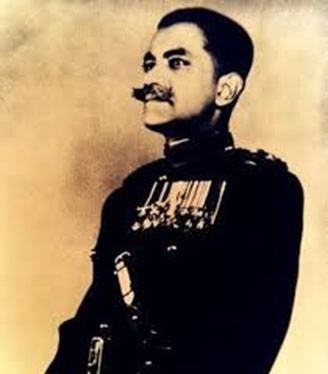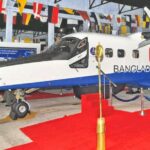Happy Birthday to General Muhammad Ataul Ghani Osmani, Commander-in-Chief of Bangladesh Forces during the Liberation War of 1971
General Muhammad Ataul Ghani Osmani (Birth: 1 September 1918 – Death: 16 February 1984), popularly known as Bangabir (Hero of Bengal), was the Supreme Commander of the Bangladesh Liberation War and the first Commander-in-Chief of independent Bangladesh. On the occasion of his 107th birth anniversary on 1 September 2025, below is a detailed account of his life and contributions.
Birth and Childhood
Born: 1 September 1918, in Sunamganj, Sylhet (present-day Bangladesh).
Ancestral Home: Dayamir village, Balaganj Upazila, Sylhet (now Osmaninagar Thana).
Father: Khan Bahadur Mofizur Rahman, a Sub-Divisional Officer in Sunamganj.
Mother: Jobeda Khatun.
Education:
Began primary education in Gohati.
Enrolled in Cotton School, Assam, in 1923.
Joined Sylhet Government Pilot High School in 1932. In 1934, secured the first position in the Matriculation Examination across British India, earning the Pretoria Award. Graduated from Aligarh Muslim University in 1938.
Military Career
1939: Joined the British Indian Army and trained at the Military Academy in Dehradun. 1940: Commissioned as an officer in the Royal Armed Forces.
1941: Promoted from Lieutenant to Captain, serving as a Commanding Officer in the Service Corps Battalion in the Burma (now Myanmar) sector during World War II.
1942: At age 23, promoted to Major, becoming the youngest Major in the British Empire.
1947: After the partition of India, joined the Pakistan Army on 7 October as a Lieutenant Colonel. 1949: Appointed Deputy Chief of General Staff.
1951: Became the Commanding Officer of the 1st Battalion of the East Bengal Regiment and established the Chattogram Cantonment.
1956: Promoted to Colonel.
1967: Retired from the Pakistan Army in protest against the discriminatory treatment of Bengali soldiers by West Pakistani authorities.
Role in the Liberation War
1971: Appointed Commander-in-Chief of the Mukti Bahini (Liberation Forces) on 12 April 1971. War Strategy: Divided Bangladesh into 11 sectors, appointing sector commanders. Adopted guerrilla warfare tactics and strategies to keep the enemy fragmented. Navy and Air Force: Formed a naval commando unit. Established a small air force with two helicopters and a Dakota aircraft in the final stages. Surrender Ceremony: Notably absent during the Pakistani forces surrender ceremony on 16 December 1971 which remains a subject of debate.
Role in Independent Bangladesh
1972: Served as the first Chief of the Bangladesh Army and retired as a four-star General. Politics: Served as a minister and Member of Parliament in Sheikh Mujibur Rahman’s government but later resigned due to political differences.
Death
Died 16 February 1984, in Dhaka.
Notable Contributions
Recognized as the founder of the Bangladesh Armed Forces.
– His strategic planning and coordination during the Liberation War played a pivotal role in achieving Bangladesh’s independence.
The title Bangabir symbolizes his courage and patriotism.
General Osmani’s life and legacy remain a glorious chapter in Bangladesh’s history. On his 107th birth anniversary, we pay tribute to this heroic son of the soil and the Supreme Commander of the Mukti Bahini. May Almighty Allah grant him Jannah
















